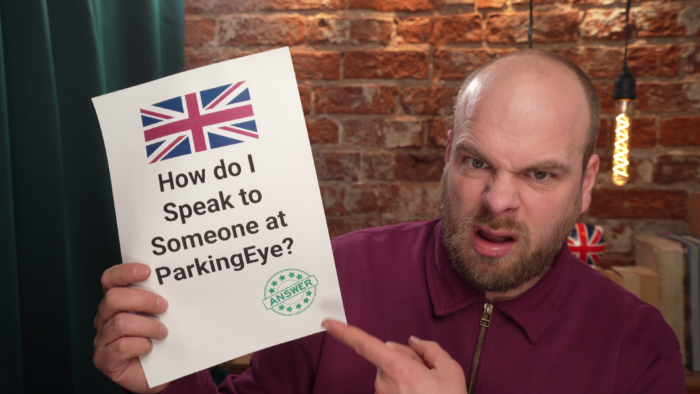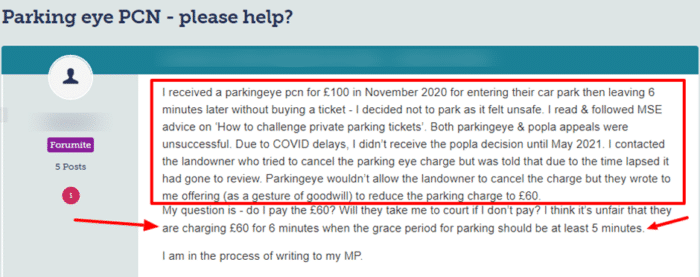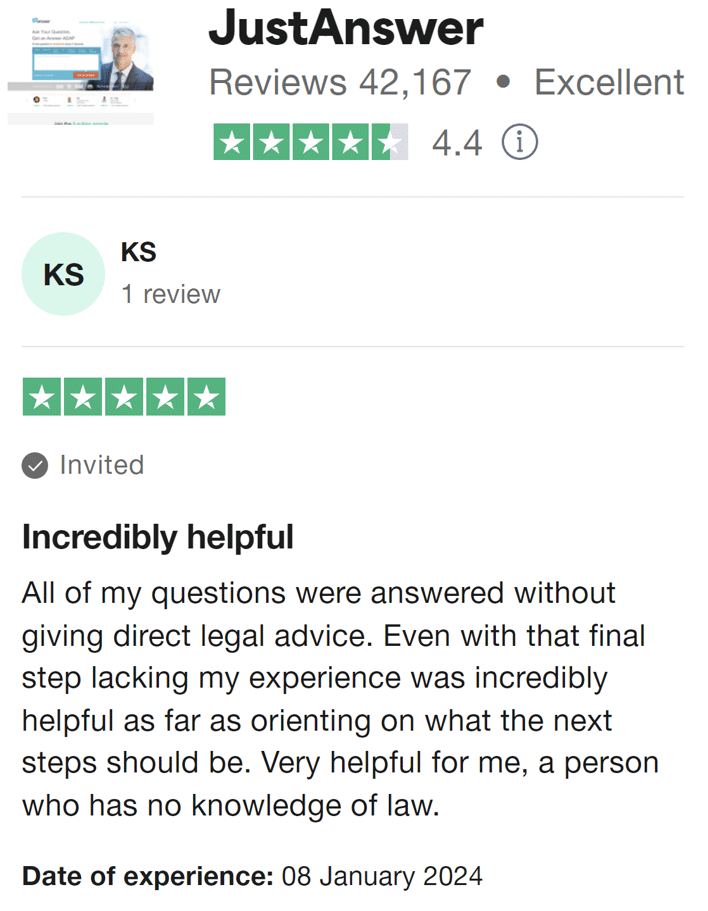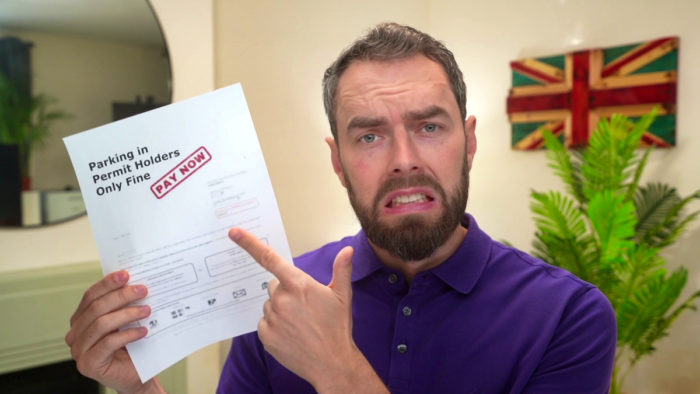How do I Speak to Someone at ParkingEye?

Have you received a private parking fine from ParkingEye and are unsure about what to do next? This is just the right place for you. Every month, over 130,000 people visit our website for advice on fines and parking tickets.
In this helpful article, you’ll find:
- Who ParkingEye is and what ANPR means.
- If you need to pay ParkingEye Fines.
- How to appeal a parking ticket from ParkingEye.
- Understanding if you might not have to pay.
- What happens if your appeal is not successful.
Which? found that, despite 78% of members deeming private parking fines unfair, many don’t contest due to low confidence in appeal success.1
We know that this process can be confusing. But don’t worry; we have a lot of helpful tips and examples to guide you. Let’s dive in and help you understand what to do about your ParkingEye fine.
Most Ticket Appeals Succeed
In some circumstances, you might have a legitimate reason not to pay your parking fine.
It’s a bit sneaky, but the last time I needed legal advice, I paid £5 for a trial to chat with an online solicitor called JustAnswer.
Not only did I save £50 on solicitor fees, I also won my case and didn’t have to pay my £271 fine.
Chat below to get started with JustAnswer
*According to Martin Lewis, 56% of people who try to appeal their ticket are successful and get the charge overturned, so it’s well worth a try.
Who is ParkingEye?
ParkingEye is a private company that manages car parks across the UK. The company provides private parking enforcement UK services to its clients.
They use ANPR parking systems to monitor drivers’ parking activities. They are often used by:
- Supermarkets
- Private landowners
Private parking tickets are not to be confused with public parking which is managed by the local council. When drivers park for too long or fail to pay for their stay, they are issued with a Parking Charge Notice by ParkingEye.
The usual fine is £60 which is raised to £100 if not paid within 14 days2.
What is ANPR?
Automatic Number Plate Recognition (ANPR) is used by car park companies and the authorities to record parking infringements and traffic violations. The technology captures a vehicle’s number plate and location. The data is then used to pursue an offender.
If it’s over a Parking Charge Notice, an accredited operator like ParkingEye retrieves the information from the DVLA.
The operator sends the parking fine to the vehicle keeper’s address as their details are held by the DVLA.
How do you pay your ParkingEye fine?
You can pay over the phone or by cheque to the company’s address in Blyth.
If your payment doesn’t clear then an extra fee could be added. So make sure that you have funds, that your cheque will clear and that you pay the correct amount.
How do you appeal a parking ticket from ParkingEye?
You have the right to appeal the fine if you believe it was wrongfully issued.
To do so, you must contact ParkingEye directly within 28 days, and provide evidence as to why you believe your ticket should be overturned.
Do not pay your fine if you intend to appeal. All further action will be halted until the appeal outcome.
Appeal Process Steps
Here’s a table that will help you understand the steps you should take to appeal a parking ticket from ParkingEye. For more information, be sure to read our complete guide.
| Process: | Steps you should take: |
|---|---|
| When you receive the ticket… | You should gather as much evidence as you can to support your appeal claim and prove that the ticket was unfairly issued. |
| If you were given the ticket in person/attached to your car… | You must make an informal appeal (sent to the local authority/council that issued the PCN) within 14 days. This should be a letter with the evidence proving why the ticket was incorrectly given. |
| If it was posted to you… | You will be given 21 days to submit an informal appeal (from the day you received the letter). Your informal appeal should be a letter with the evidence proving why the ticket was incorrectly given. |
| If the informal appeal is rejected… | You will receive a Notice to Owner and will have 28 days to respond to this with a formal appeal. You can conduct the formal appeal online or via paper form. The Traffic Penalty Tribunal can send you one of these forms. |
| If the formal appeal is rejected… | You will receive a Notice of Rejection. From here, you are free to challenge the council’s verdict at an independent tribunal. |
| If the independent tribunal disagrees with your appeal… | You should pay the ticket within 28 days of the tribunal rejecting your appeal. If you don’t, the fine will be increased by 50%. If you don’t have the money to pay the fine, you should contact Citizens Advice or another debt charity. |
Successful Appeal Case Study
Situation
| Initial Fine | £100 |
| Additional Fees | £171 |
| Total Fine | £271 |
The Appeal Process
Scott used JustAnswer, online legal service to enhance his appeal. The trial of this cost him just £5.
| Total Fine | £271 |
| Cost of legal advice | £5 |
JustAnswer helped Scott craft the best appeal possible and he was able to win his case.
Scott’s fine was cancelled and he only paid £5 for the legal help.
In partnership with Just Answer.
On what grounds can you appeal a ticket?
You could have grounds to appeal a ParkingEye fine for the following reasons:
- You were not given the 10-minute grace period to get back to your vehicle.
- You had broken down and were waiting for assistance.
- You have a disability or are pregnant.
- The parking signs were not clear or visible.
- You had an emergency. We’ve previously spoken out about private parking companies giving fines to people who, whilst parked in hospital car parks, experienced delays due to an emergency situation. It is very important for drivers to know their rights.
- You paid the amount requested and have proof.
- You received the fine more than 14 days after the alleged parking violation.
- You were not the owner of the car at the time, because you had sold it.
We suggest you make sure you follow the correct Parking Charge Notice appeal process. We’ve included a message a concerned motorist posted on an online forum.

Source: Moneysavingexpert
You should provide as much proof as possible to appeal your ParkingEye ticket, including photos and witness statements.
» TAKE ACTION NOW: Get legal support from JustAnswer
What happens if you lose your appeal?
If you lose your appeal then you can take it to an Independent Appeal Service, in this case POPLA
You must do this within 28 days of your appeal being rejected. The operator will look at your claim and make a decision on it either way. You will need to provide them with all the evidence that you have to support your claim.
If they dismiss your appeal then there is no further action that you can take and you will have to pay the fine within 28 days.
If you do not pay further action could be taken such as the fine being passed to a debt collection agency or court action could be started.
If they agree with your evidence, you will not have to pay and the operator must cancel the fine.
Is the POPLA decision binding?
Yes, once a decision has been made, either way, that decision is final and binding to both parties.
The only option left to a motorist is to take out legal action against the operator which is expensive. Plus, there’s no guarantee of success.
How often are parking ticket fines overturned?
You may be wondering what the POPLA appeal success rate is, which we’ve listed below. According to a report by POPLA In 2021, 37% of motorists had their Parking Charge Notices cancelled.
So, if you feel that you have valid grounds for an appeal, then it could be worth doing.
Join thousands of others who got legal help for a £5 trial
Getting the support of a Solicitor can take a huge weight off your mind.
Reviews shown are for JustAnswer.
Common misconceptions about private parking fines
We’ve included some common misconceptions about private parking fines here.
Parking Charge Notices are not legally enforceable – not necessarily true. Although not immediately enforceable, an operator could take you to court and win. In which case, a private parking fine is enforceable when a judge orders you to pay.
We can ignore a parking ticket on private land – not true. You should not ignore a Parking Charge Notice. You should either pay or appeal the fine.
Can ParkingEye take you to court?
Yes, ParkingEye can take you to court, this will result in a CCJ on your credit file if they win. If you don’t pay the CCJ within 28 days, the record will affect your chances of obtaining credit for 6 years.
That’s one of the effects of unpaid ParkingEye fines.
Plus, if you do not pay then further action would be taken which will involve bailiffs (enforcement agents).
Hire a Parking Solicitor for less than a coffee.
If you’re thinking about appealing your parking ticket then getting some professional advice is a good idea.
Getting the support of a Solicitor can make your appeal much more likely to win.
For a £5 trial, Solicitors from JustAnswer can look at your case and help you create an airtight appeal.
Try it below
In partnership with Just Answer.


